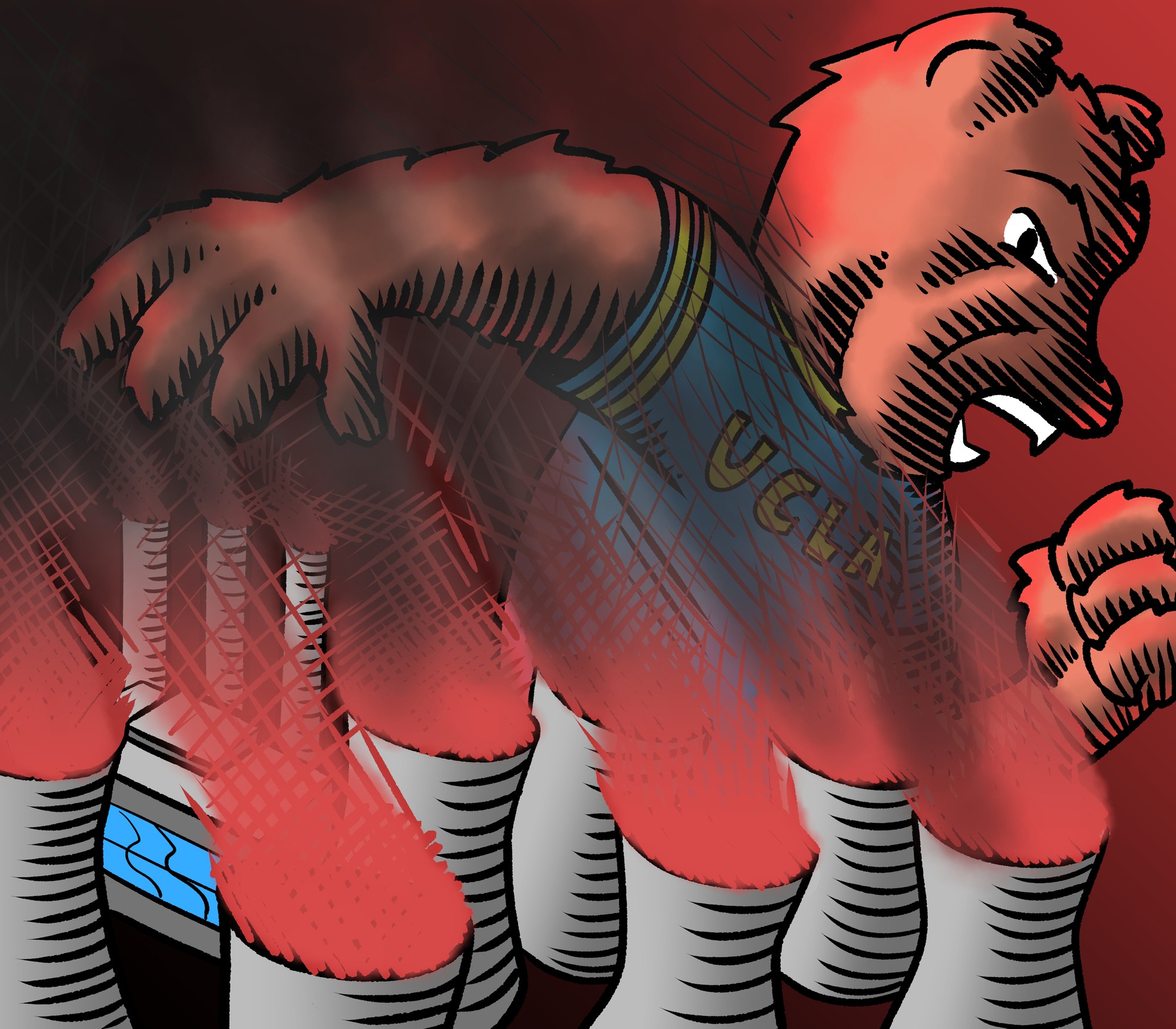UCLA community weighs in on benefits of UC’s recent fossil fuel divestment

(Cody Wilson/Daily Bruin)
By Kalysa To
Oct. 8, 2019 12:37 a.m.
UCLA students and faculty say they think the University of California’s recent decision to divest from fossil fuels is both financially and environmentally beneficial.
The UC announced its decision to divest from fossil fuels Sept. 17 in an op-ed in the Los Angeles Times, citing financial risk as the main reason for the decision.
The UC’s $13.4 billion endowment and $70 billion pension will both be fossil-free, said Jagdeep Singh Bachher, the UC’s chief investment officer and vice president of investments, and Regent Richard Sherman, chair of the Investments Committee of the UC Board of Regents, in the article.
Bachher and Sherman said in the article renewable energy sources provide more appealing investment opportunities than old fossil fuel assets.
The UC found that the risks outweigh the benefits after looking closely at sustainability index systems, which look at eight different factors to construct a framework for sustainable investing, said Curtis Eckhert, a UCLA professor emeritus of environmental health sciences.
“(The UC chief investment officer) has looked at the investments in the area of fossil fuels and determined that the risk-benefit is out of proportion for the pension funds and income,” Eckhert said. “And so he removed these investments from the portfolio.”
Eckhert said he looks at the UC’s decision to divest from fossil fuels as a symbolic investment which will encourage other people to move toward carbon neutrality, emitting net zero greenhouse gas emissions.
While the divestment will not affect the companies directly, Eckhert said this divestment will put pressure on politicians to enact a carbon tax – a fee for producing or using greenhouse gases – to reduce the use of fossil fuels.
“(The divestment) will have no impact at all on the companies,” Eckhert said. “But the symbolic withdrawal of a big pension fund … what that does is it puts pressure on other groups to do the same.”
Daniel Blumstein, a professor of ecology and evolutionary biology, said he supports the UC’s decision to divest from fossil fuels. He added he thinks while financial reasons are important in the decision to divest, there are also much broader implications.
“Anyone in charge of managing a financial portfolio needs to be concerned with the financial implications of their decisions, so that’s a good reason, from a very narrow position,” Blumstein said. “The broader decision is that it also … sends a message that there are other ways of making money with energy other than fossil fuels … and there are risks associated with continued investment in fossil fuels.”
Aidan Arasasingham, a third-year global studies student and an undergraduate representative on the Associated Students UCLA Board of Directors, said he thinks the UC’s divestment from fossil fuels sends a message to other institutions.
“I’m so proud to attend a university that has taken such a bold stance, acknowledging and working to address the climate crisis that our generation is facing by taking this really historic first step,” Arasasingham said.
Arasasingham said since the divestment also includes the UC’s pension fund, he is excited that ASUCLA employees can have secure retirement portfolios that are not invested in fossil fuels.
“All ASUCLA employees can have the peace of mind knowing that their retirement is no longer invested in fossil fuels, and will be able to grow and support them while still supporting investments in progressive climate solutions,” he said.
He added he thinks climate solutions and financial security are both important reasons to divest from fossil fuels, and the profitability of moving away from fossil fuels is an exciting prospect.
“It means we’re finally starting to reach that watershed moment in climate mobilization when it’s more financially advantageous to invest in innovative climate solutions than in risky fossil fuel positions,” Arasasingham said. “It really shows that it’s in our economic and moral self-interest towards a carbon neutral future.”
Eckhert said divesting from fossil fuels has become profitable because of energy sources that compete with gas and oil, such as solar power.
“(Solar power) was competing and it has now reached the point where it can provide energy … and can compete with oil,” Eckhert said. “It’s financial, it’s all money.”
Arasasingham said this decision was led by students, faculty and climate organizers that pushed the conversation in this direction.
He added the strong mobilization of students and faculty that pushed the UC to divest in fossil fuels posed a political risk, making divesting from fossil fuels become more financially advantageous.
“The reason why the financial calculus changed is because the political calculus changed,” Arasasingham said.

